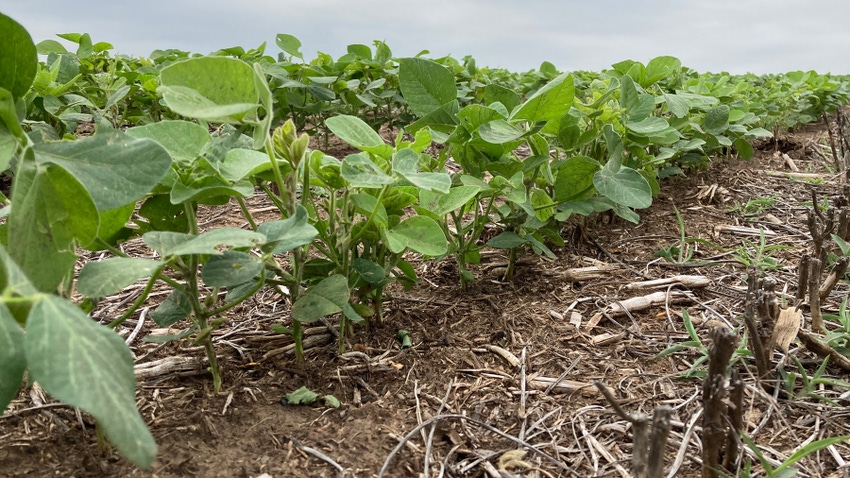
The carbon footprint of raising U.S. soybeans decreased 19% in 2021, according to a newly released Life Cycle Assessment commissioned by the United Soybean Board and the National Oilseed Processors Association.
The study, conducted by Sustainable Solutions Corp., analyzed soybean cultivation data from 454 farms in 16 states for 2020 and 2021, according to a news release from the United Soybean Board. It calculated the global warming potential profile of whole soybeans, soybean meal and soy oil, and then compared those with findings from 2010 and 2015.
It also assessed the key drivers of cultivation and harvesting, transportation, and energy used in processing.
Soybean production contributes about $124 billion to the U.S. economy, according to USB. The U.S. is the second-largest exporter of soybeans in the world, and soybeans are about 90% of the U.S. oilseed production.
The study also found that the carbon footprint for U.S. soybean meal decreased by 6%. The footprint for crude soy oil dropped by 22%, and the footprint for refined soy oil was down 8%.
USB says these factors along the soybean supply chain contributed to the decrease in global warming potential:
Land management continues to improve soil health and water quality.
Advancements in seed quality have led to a 24% boost in yields since 2015.
Farmers are changing their pesticide use and energy consumption by decreasing their applications, implementing no-till and expanding cover crops.
Manufacturers continue to improve their efficiency in processing oilseeds, such as switching to natural gas fuel sources from coal.
You can find the full LCA report at nopa.org.
About the Author(s)
You May Also Like






